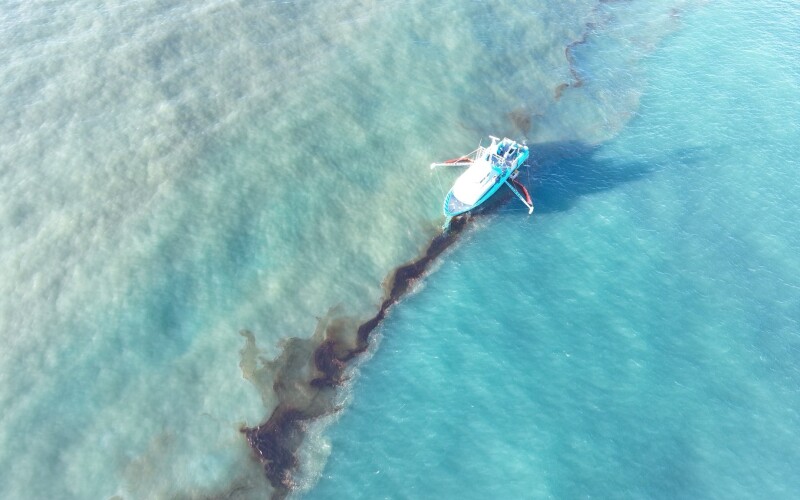Concerns are escalating as estimates reveal that the Louisiana oil spill may surpass one million gallons. The Unified Command, overseeing the situation remains vigilant in responding to the incident dubbed the MPOG11015 incident, located near the Main Pass Oil Gathering (MPOG) company's pipeline system in Plaquemines Parish, southeast of New Orleans.
Over the course of Friday and Saturday, the Unified Command conducted multiple overflights. On Friday, the overflight teams observed visible oil moving southwest from the Louisiana shore, prompting the deployment of three skimming vessels to recover the oil on the surface. Subsequent overflights on Saturday and Sunday revealed intermittent surface sheens, with ongoing observations facilitated by two Coast Guard cutters and additional overflights to assess the situation.
A 95-foot response vessel from Clean Gulf Associates is actively skimming crude oil approximately 4 miles southeast of South Pass, Louisiana, illustrating the collaborative efforts of the Coast Guard, Main Pass Oil Gathering Company, LLC, and the Louisiana Oil Spill Coordinator’s Office to assess, contain, and mitigate the spill.
Remotely operated vehicles, deployed on Friday morning, are actively surveying the pipeline, and thus far, no source area has been identified. The Unified Command is diligently working to ascertain the origin of the release, emphasizing the importance of continued surveying, weather permitting.
As of now, there are no reported injuries or shoreline impacts. The exact volume of discharged oil remains unknown, but initial engineering calculations suggest a potential release of 1.1 million gallons of crude oil from the affected 67-mile pipeline, closed by MPOG at 6:30 a.m. on Thursday.
The Coast Guard maintains its oversight of coordinated efforts to mitigate the impact of the oil discharge. The Unified Command collaborates closely with federal, state, and local agencies, prioritizing public safety, environmental protection, and incident response.
A marine safety information broadcast is actively transmitted to all vessels in the affected area, and an ongoing investigation seeks to uncover the cause of the incident.







